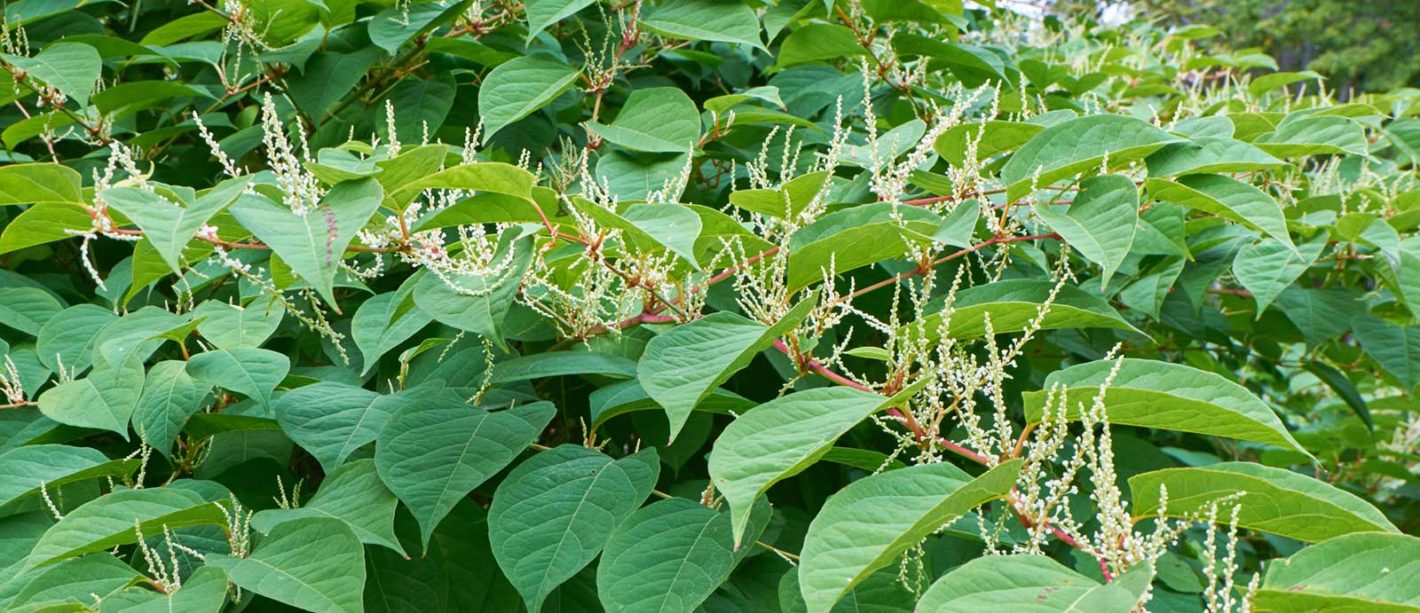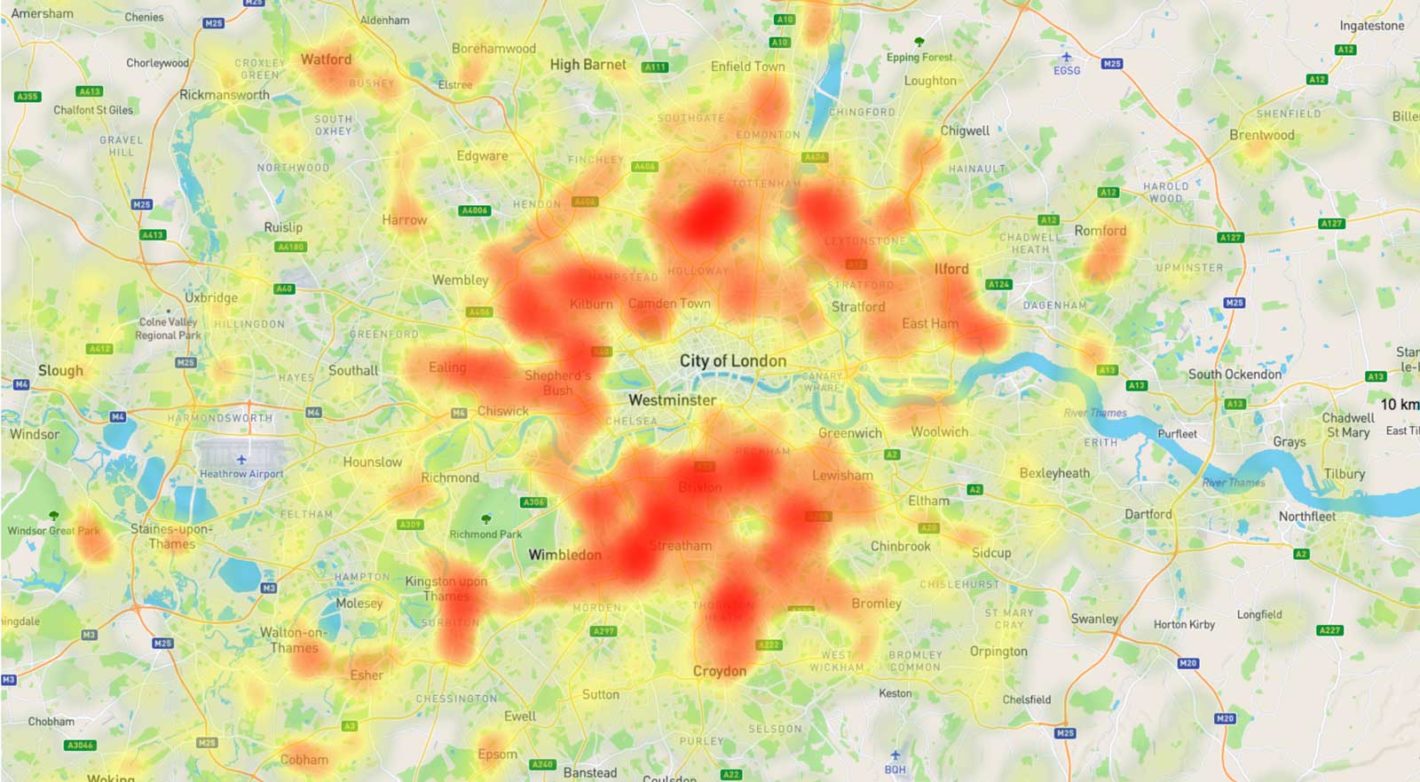At TV Edwards LLP, our specialist UK Japanese knotweed dispute lawyers have successfully represented clients whose properties have been affected by Japanese knotweed.
What is Japanese Knotweed?
Japanese knotweed (Fallopia japonica) is a weed that spreads rapidly. In winter the plant dies back to ground level but by early summer the bamboo-like stems emerge from rhizomes deep underground to shoot to over 2.1m (7ft), suppressing all other plant growth around them.
You can identify this as there is a growth pattern of one stem per node. The weed forms a zig-zag stem growth pattern. The leaves are a mid-green colour and are the shape of a heart. The Knotweed flowers are small and a creamy-white colour. They form in loose clusters around late summer/early autumn.
It originated in eastern Asia. It was brought to Britain in the 19th Century by the Victorians, who used it as an ornamental plant.

How our Dispute Resolution team can help
If you are seeking a Solicitor to advise you in relation to your rights and the steps that can be taken to force someone to eradicate Japanese Knotweed spreading to your land or would like to find out about our services more generally, please contact our Dispute Resolution team at TV Edwards Solicitors.
“Japanese Knotweed can cause structural and foundational problems for neighbouring houses and buildings.”
ADAM HAFFENDEN
What is the problem with Japanese Knotweed?
The weed isn’t poisonous to human beings but can be irritable to sensitive skin. It has a particularly quick growth speed, which can be up to 3m in a month.
Japanese Knotweed Heatmap
The below heat map shows how Japanese Knotweed is spreading in London at alarming rates.

Complete interactive heatmap : https://gt-ltd.co.uk/knotweed/
Recent Dispute Testimonials
“I instructed Adam Haffenden, Head of Dispute Resolution, regarding the removal of the highly invasive Japanese Knotweed plant that was spreading from neighbouring land onto mine. The advice I received was absolutely superb. His thorough understanding of this niche area of law enabled us to negotiate the removal of the knotweed with our neighbour, within weeks of instructing him, without having to engage in costly litigation. If you want top rate legal advice, delivered in a simplistic way, I highly recommend Adam and TV Edwards to everybody who needs Japanese Knotweed advice”.
Japanese Knotweed – what can you claim for?
Pursuant to the Wildlife and Countryside Act 1981, it is an offence to cause Japanese Knotweed to grow in the wild. The owner of the land with the knotweed present therefore has an obligation to prevent it causing a nuisance and spreading to neighbouring land or properties.
If you fail to remove the Japanese Knotweed using a professional removal company ensuring it doesn’t come back it would constitute a private nuisance. A private nuisance is an actionable cause of action and is defined as an act or omission which is an interference with, disturbance of or annoyance to a person in the exercise or enjoyment of his ownership or occupation of the land. It allows the aggrieved party to apply to court for injunctive relief compelling its removal and/or seek damages that have been sustained because of this failure.
Using this cause of action, you could claim for:
- The loss of enjoyment or amenity (which may amount to diminution in value of your property).
- The costs of removal (in practice this could be an eradication process of at least a couple of years backed by a guarantee); and
- A continuing injunction against reinfestation and/or requiring action to control the Japanese knotweed.
Japanese Knotweed Treatment Options?
Herbicide spray – treatment could be applied directly to the leaves. This can be very effective but can result in unwanted damage to landscaping and other parts of the owner’s property. This treatment could take over five years if the weed is mature and well established.
Stem Injection – This involves injecting herbicide into each individual stem. This can eradicate the Japanese Knotweed and is usually less intrusive to the surrounding environment.
Root Barrier – It is possible to prevent the spread by using a root barrier. The root system cannot penetrate this barrier, and it therefore stops the plant from spreading out.
We always advise to use a professional company specialising in removing Japanese Knotweed to ensure it is done correctly.
What are your responsibilities?
If you are looking to buy or sell your property, you must ensure to check your garden for Japanese Knotweed and any traces must be disclosed via the TA6 form that your solicitor will use when the sale is progressing.
If the property you are looking to buy has Japanese Knotweed, then it is common that your mortgage lender will want some assurances that the problem will be eradicated before they will agree to release your funds. It may be that a treatment plan by a professional company, backed by a guarantee would be sufficient.
If you bought a property and can show that the seller was aware the weed was present but failed to disclose it on the above-mentioned forms, you may be able to pursue a claim for misrepresentation against the seller.
Community Protection Notice
In addition to the above action, you might be able to seek a Community Protection Notice under Anti-social Behaviour, Crime and Policing Act 2014. The local authority (or the police) have the power to serve a community protection notice on an individual or body if satisfied on reasonable grounds both that the conduct of an individual or body:
- Is having a detrimental effect, of a persistent or continuing nature, on the quality of life of those in the locality.
- Is unreasonable.
Town and Country Planning Act 1990 Notice
Another option would be to request that the local authority serve a notice on the occupier of land pursuant to the Town and Country Planning Act 1990 requiring it to remedy the condition of land within a specific period where, in the local authority’s opinion, the amenity of an area (or adjoining area) is adversely affected. This power could be exercised for infestation of land by Japanese knotweed, particularly where it is at risk of spreading onto adjoining land.
The issue of Japanese Knotweed, particularly in Greater London and the surrounding area, is becoming a real problem. It could have a severely detrimental impact on you and the value of your property if action isn’t taken to prevent its spread. It is always sensible to seek advice at the earliest opportunity once the Knotweed is spotted, before it gets out of hand.

 You & Your Family
You & Your Family You & Your Property
You & Your Property You & Your Business
You & Your Business









